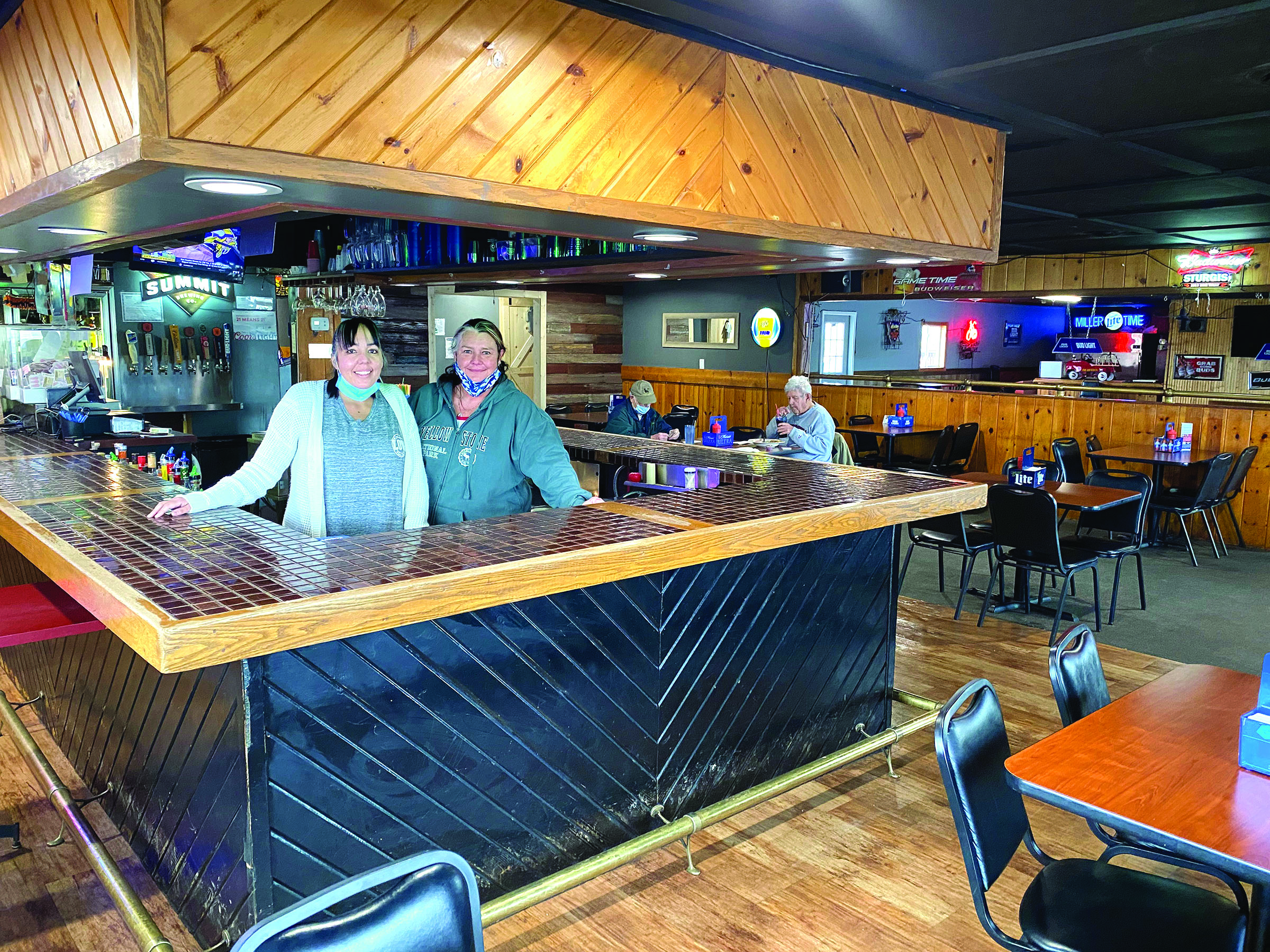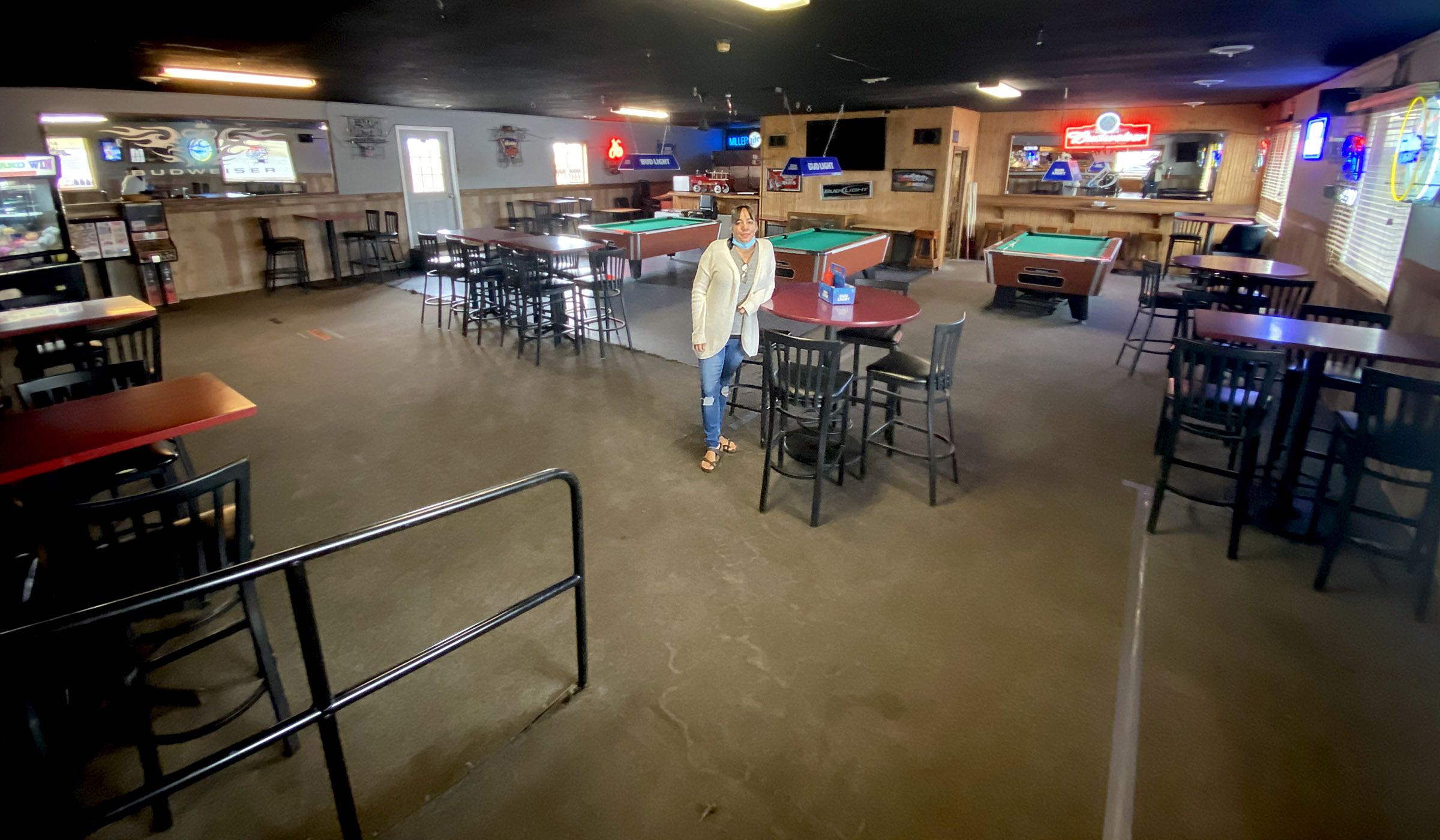 ,
, 
Jodi Reverts just paid more than $1,000 to the state for her optional 2 a.m. liquor license at the Howling Dog Saloon, and now she can’t use it, due to new restrictions on bars in Minnesota.
“It’s frustrating,” Reverts said. “I’ve been here for 20 years — managed for seven and owned for 13. I never thought I’d see this. This is just another whole new level of frustration.”
According to the new executive order that went into effect Friday night, bars and restaurants can no longer serve alcohol and food to in-person customers after 10 p.m. (They can sell take-out food.)
People eating and drinking in person have to sit at tables — not at the bar, something Reverts is particularly disappointed about.
“So many people come in by themselves and sit at the bar for something to eat and drink. It’s not about getting drunk; it’s the social connections,” Reverts said.
“I had one of my regulars tell me, ‘I don’t think I can go to the bar anymore. I don’t want to sit at a table by myself to get something to eat.’ And he’s not the only one.”
Linda DeSplinter of the Green Lantern in Hardwick echoed those sentiments.
“A lot people who live alone come here for companionship,” she said. “They sit at the bar, watch TV and have a couple beers. … These people are lonely and they come here to sit at the bar for company. … This is going to kill them.”
Reverts shared the story of a 97-year-old man who is disappointed by the new bar regulations.
“He comes in every day for a couple beers, pull tabs and a bite to eat,” she said. “I asked him if he’s worried about the coronavirus, and he said ‘If I ain’t dead yet, I’m not worried about the coronavirus.’ He wants to get out and live.”
They said pull-tab revenue will also suffer with the restricted hours and restricted movement among patrons in the bar.
The executive order requires all patrons to be seated at tables at all times, with exceptions for entering and leaving the establishment and using the the restrooms.
The Optimist Club sells pull tabs in the Howling Dog and the Hardwick American Legion has its tabs in the Green Lantern. Both places raise the most money for the nonprofits when the bar is busiest — after 10 p.m. on weekends.
“That’s a lot of revenue lost for these guys,” DeSplinter said.
And, the early closure will take a bite out of business revenue and tip income for bar servers.
“I have up to 15 employees. One is a full-time cook, but the rest are servers who rely on their tips,” Reverts said.
From 10 to 2 is when the bigger tippers come in. On a Friday or Saturday night, it’s not uncommon at all for one of them to walk out with $100 or $200 in tips, especially during the holidays.”
According to state officials, the restrictions aren’t meant to target bars, but they are focused on an age group — 18- to 35-year-olds — that appear to be prevalent asymptomatic transmitters of the virus and make up the bulk of Minnesota's cases.
The 10 p.m. bar curfew is in place because contact tracing data indicates that there's a doubling of infections that happen after 9 p.m. — that's when people let down their guard, take off masks and start mingling more closely.
DeSplinter said she doesn’t think restricting local bars will help stem the spread of COVID-19 on a local level.
“It’s not like Minneapolis here where all the kids are going out and staying out all night,” she said. “Now they’re finding each other whenever and wherever. … Do we only get COVID between 10 p.m. and 4 a.m.? Is this a thing?”
Reverts said the new restrictions could make things worse for spreading the virus.
“We can do our part with social distancing and providing masks, but now they’re all going to go to house parties or somewhere else,” Reverts said. “It’s kicking them out of the places where we’re trying to keep them safe, to where it’s obviously not going to happen.”
She and DeDesplinter are now crossing their fingers they’ll keep their businesses afloat until the pandemic is over.
“What I worry about is people find new norms, whether being at somebody’s house, or quitting drinking or going across the border or going somewhere else,” Reverts said.
“The longer it goes, the more comfortable they get somewhere else and the harder it is to get them back.”
DeSplinter said she had finally recovered from the state shutdown of bars and restaurants earlier this year and was finally enjoying a relatively robust business at the Green Lantern.
Now, she’s faced with another setback.
“This is bullsh—. I don’t agree with it at all,” she said about the state executive orders.
“I don’t get it. I don’t understand it. It’s frustrating. I don’t think it’s fair to put mandates on bars and restaurants.”


